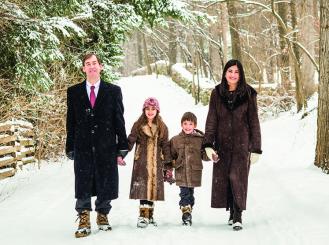Dec 18, 2017
Professor and deputy chair of the Department of Radiation Oncology at the University of Michigan; ASCO Board of Directors member; member of the Bisphosphonates in Breast Cancer and Breast Cancer Consensus Expert Panels, Quality of Care Committee, and Finance Committee.
What led you to oncology?
RJ: During my medical school rotations, I discovered what an incredible privilege oncologists have: to help patients diagnosed with a dreaded disease, ease suffering, and help them make decisions that are right for them.
What’s the last book you read?
RJ: When Breath Becomes Air, by Dr. Paul Kalanithi. The author's wife and physician served as keynote speakers at the American Society for Radiation Oncology (ASTRO) meeting. It was an extraordinarily moving story that should be required reading for anyone pursuing a career in oncology.
What hobbies do you enjoy?
RJ: I love to travel, experience new cultures, and eat yummy foods while abroad. I was once a serious pianist and am rediscovering the joys of playing now that my children are taking lessons themselves.
Do you have a personal motto?
RJ: Count your blessings.
What career could you see yourself in if you weren’t an oncologist?
RJ: I once thought I would eventually become a physician-statesman, serving my country by helping create social policy. I now can’t imagine a career that didn't involve seeing patients, doing research, and teaching.
What changes do you envision for the field in the next 10 years?
RJ: We are on the verge of a tremendous transformation to a true learning health care system, where data collected in the course of delivering routine care may actually be harnessed to drive scientific discovery and, ultimately, improve the quality of care we can provide to patients. This has important implications, from how best to engage and notify patients of this change, to how best to optimize our use of this promising new opportunity.
We are also on the verge of a transformation of the medical profession to better reflect the demographic composition of the patient population we serve. We must ensure that a robust pipeline of women and under-represented minorities enter our specialty and have the necessary mentorship and opportunities to succeed.
What would you say to a young physician thinking about entering the field of oncology?
RJ: There has never before been such an exciting time to enter our profession. Our growing understanding of tumor biology is facilitating advances towards truly individualized care. Also highly rewarding is the opportunity to engage in tailored communication to support shared decision-making in the context of the complexities of cancer. To be an oncologist allows one to witness firsthand the best in humanity and the very essence of what makes us human. There is no greater privilege.

